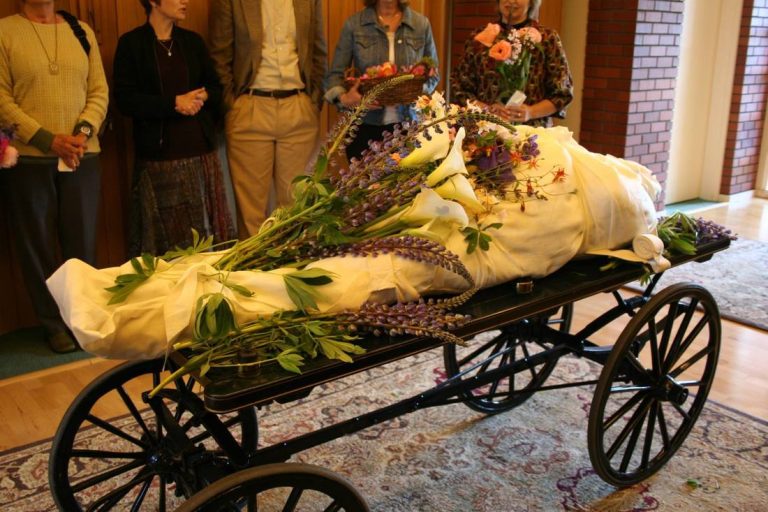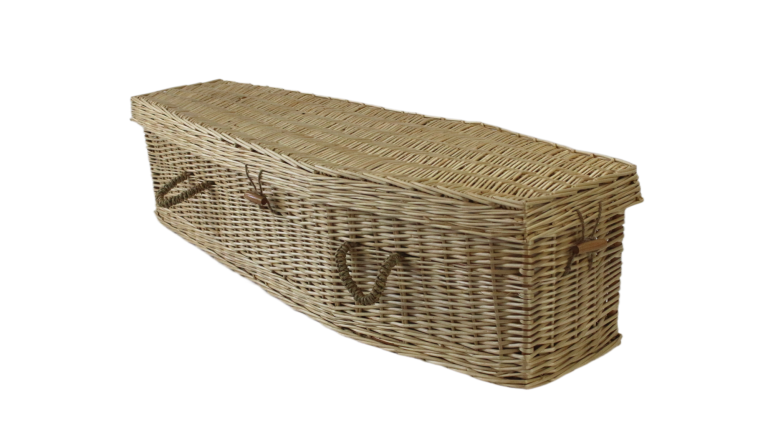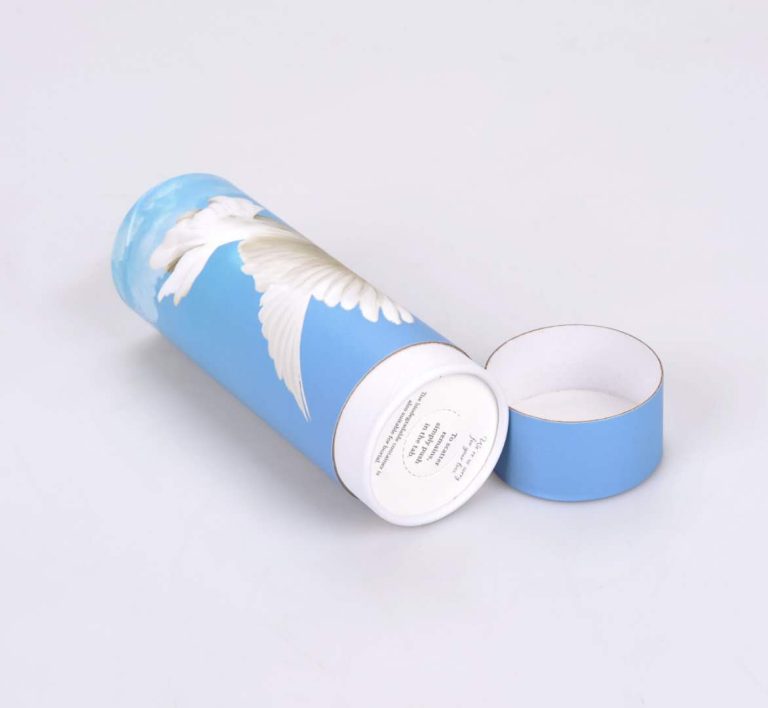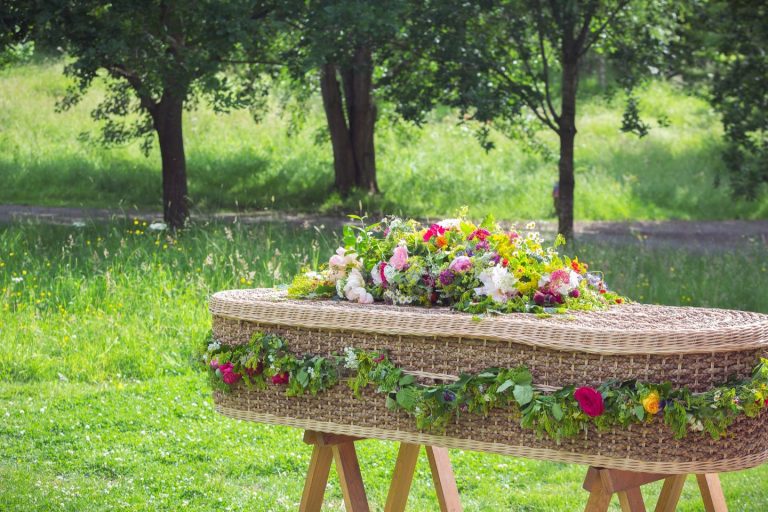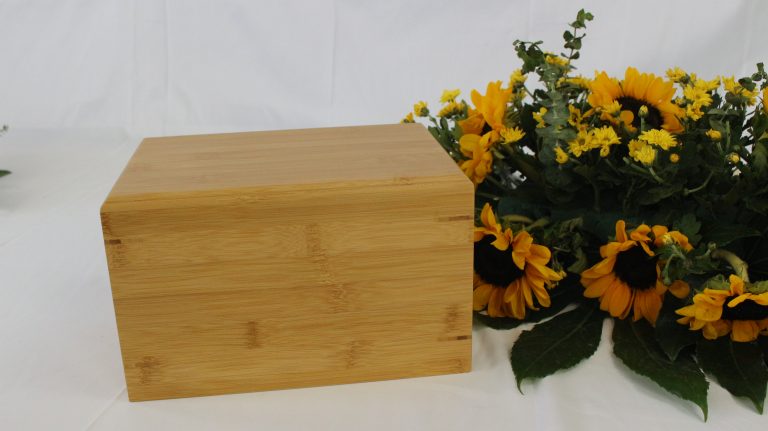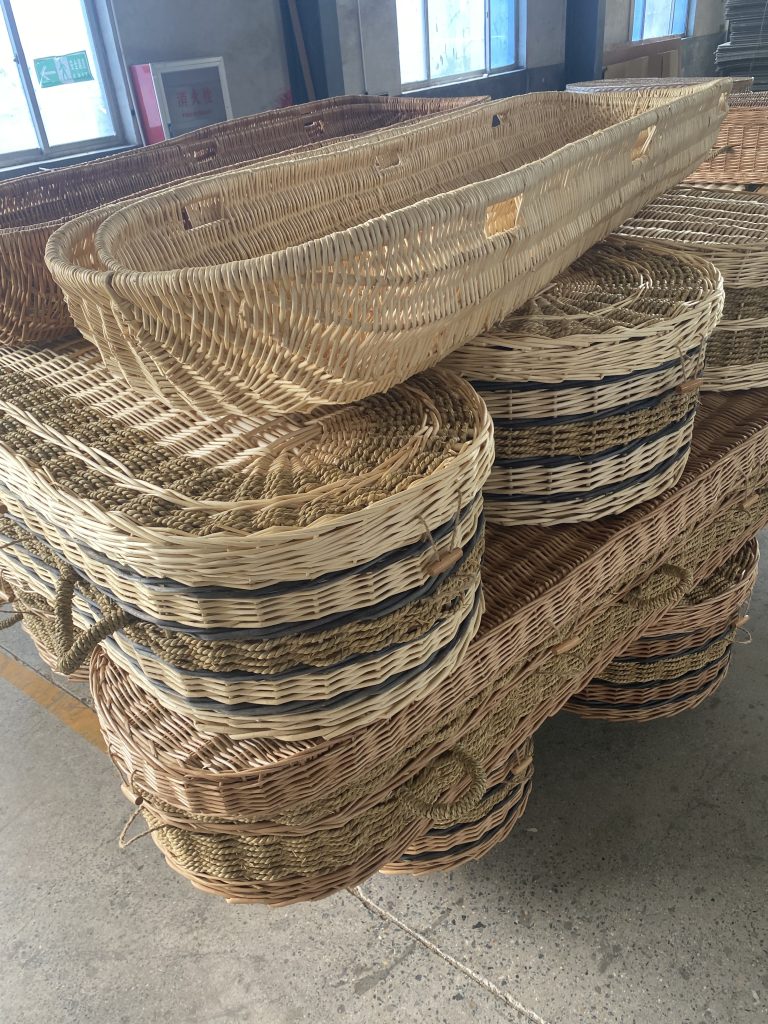In traditional funerals, solid wood coffins consume vast quantities of forests, while stone urns permanently occupy land, creating a hidden ecological burden. In recent years, the rise of biodegradable burial products is reshaping the relationship between funerals and the environment, embracing the concept of “from nature, back to nature.”
Mycelium coffins, developed by a Dutch biotechnology company, are made from mushroom mycelium, cultivated to form a dense structure that is both load-bearing and fully degrades in soil within 45 days. During the degradation process, the mycelium absorbs trace amounts of harmful substances released by the body, converting them into nutrients that can be absorbed by plants. In contrast, traditional solid wood coffins often require felling trees larger than 20 cm in diameter, and the chemical treatments used for preservative treatment can pollute the soil. Straw-based composite coffins, promoted in parts of my country, are also performing well. Made primarily from crop straw, pressed together with a natural adhesive, they cost only one-third of solid wood coffins and degrade into organic fertilizer within six months. The innovation of urns is equally significant. A fine sand-based urn developed in Spain, formed from a combination of natural sand and plant-based glue, disintegrates in soil within three to six months, eliminating the “permanent” footprint of stone urns. Bamboo fiber urns, popularized in China, are crafted from fast-growing bamboo and treated with a special process to be both moisture-resistant and biodegradable. They will naturally decompose within a year of burial. In ecological burial pilot programs in Tianjin and Zhangzhou, these biodegradable urns have served over 10,000 families. Combined with flowerbed burials and tree burials, they have increased burial efficiency per unit area by more than fivefold.
The value of biodegradable burial supplies lies not only in their environmental impact but also in reshaping funeral ethics. They break the traditional notion of “heaviness equates to respect” and, with a lightness of touch, complete the cycle of “life returning to nature.” When the mycelium coffin nourishes a new greenery, and when the bamboo fiber urn becomes nutrients for the tree, this “zero-burden” farewell is the most profound tribute to life and nature. With the maturity of technology and policy support, biodegradable burial products are moving from a niche choice to the public eye, providing a practical path for green burial.
Roconly Funeral Supplies Co.,Ltd.
Whatsapp: +86-18265103836 (Whatsapp & Wechat & Tel)
Email: jason@roconly.com
#roconlycoffins#everecoffin#willowcoffins#bamboocoffins#burialflowerbands #naturalfuneral#flowerbands#woodcross#shrouds#cremation#greenfuneral #craftsmanship #chinafactory
We are a factory supporting eco friendly green funeral(natural willow coffins\bamboo caskets and so on) .. for detail please contact us www.roconly.com;
Whatsapp: +86-18265103836 (Whatsapp & Wechat & Tel)
Email: jason@roconly.com
